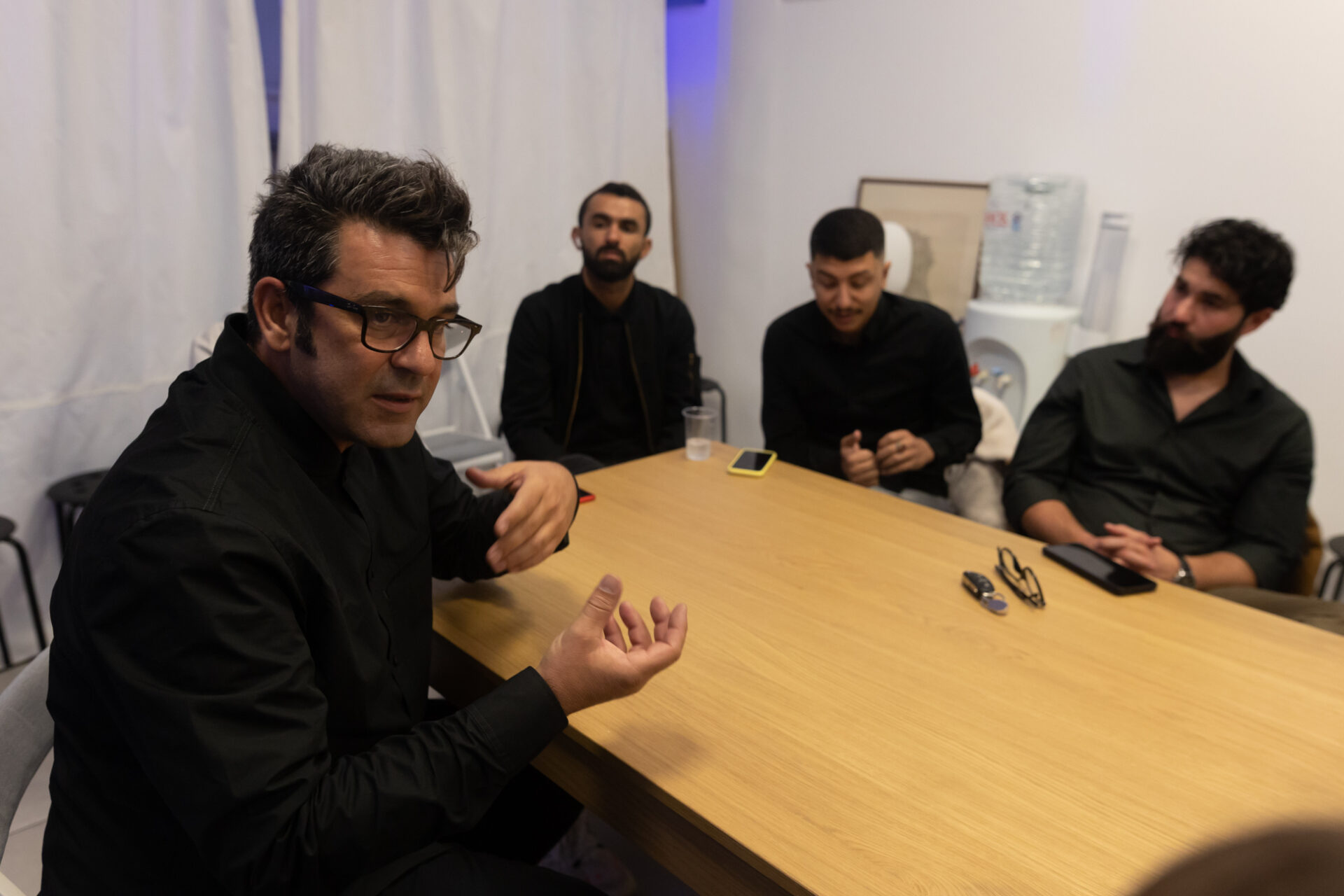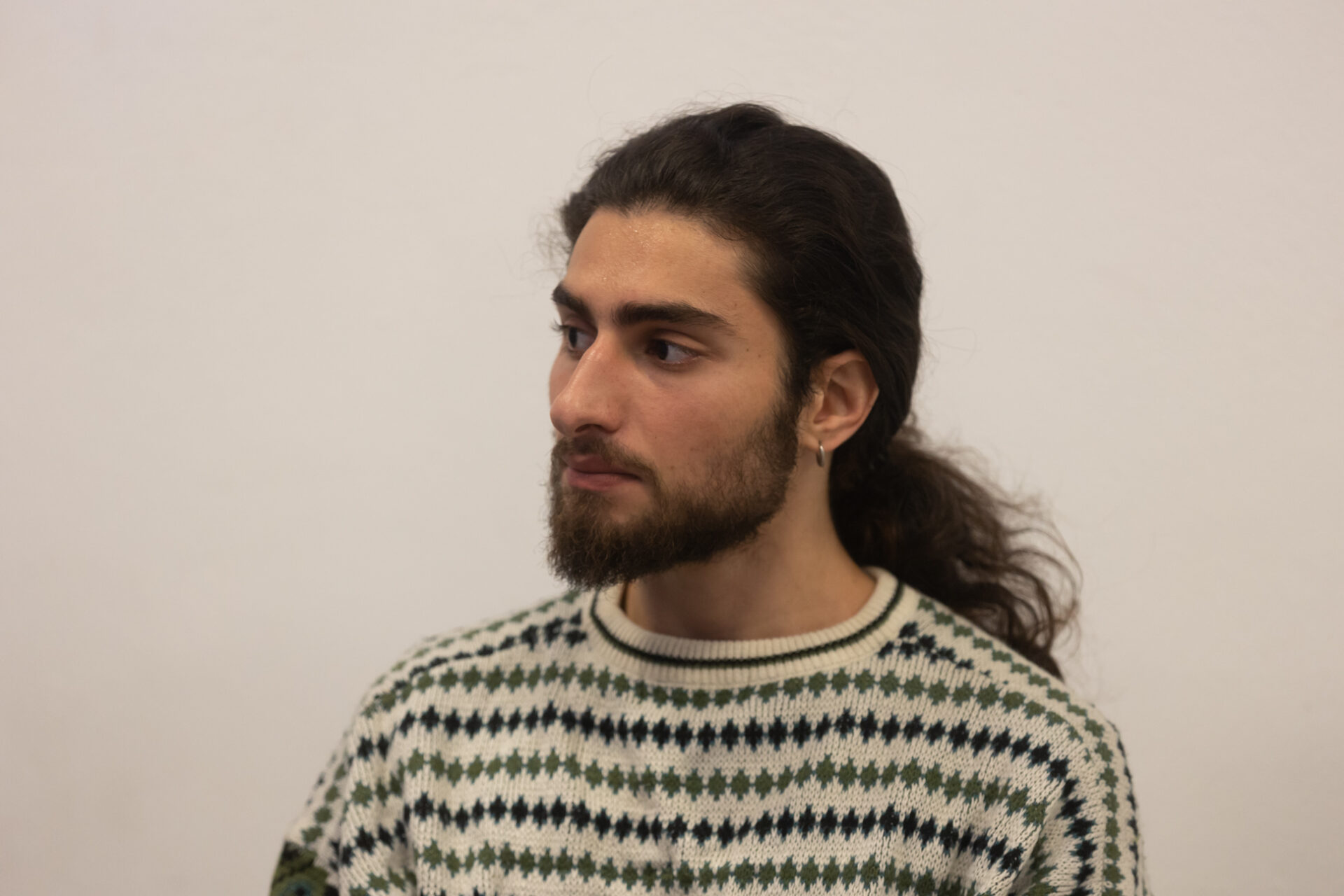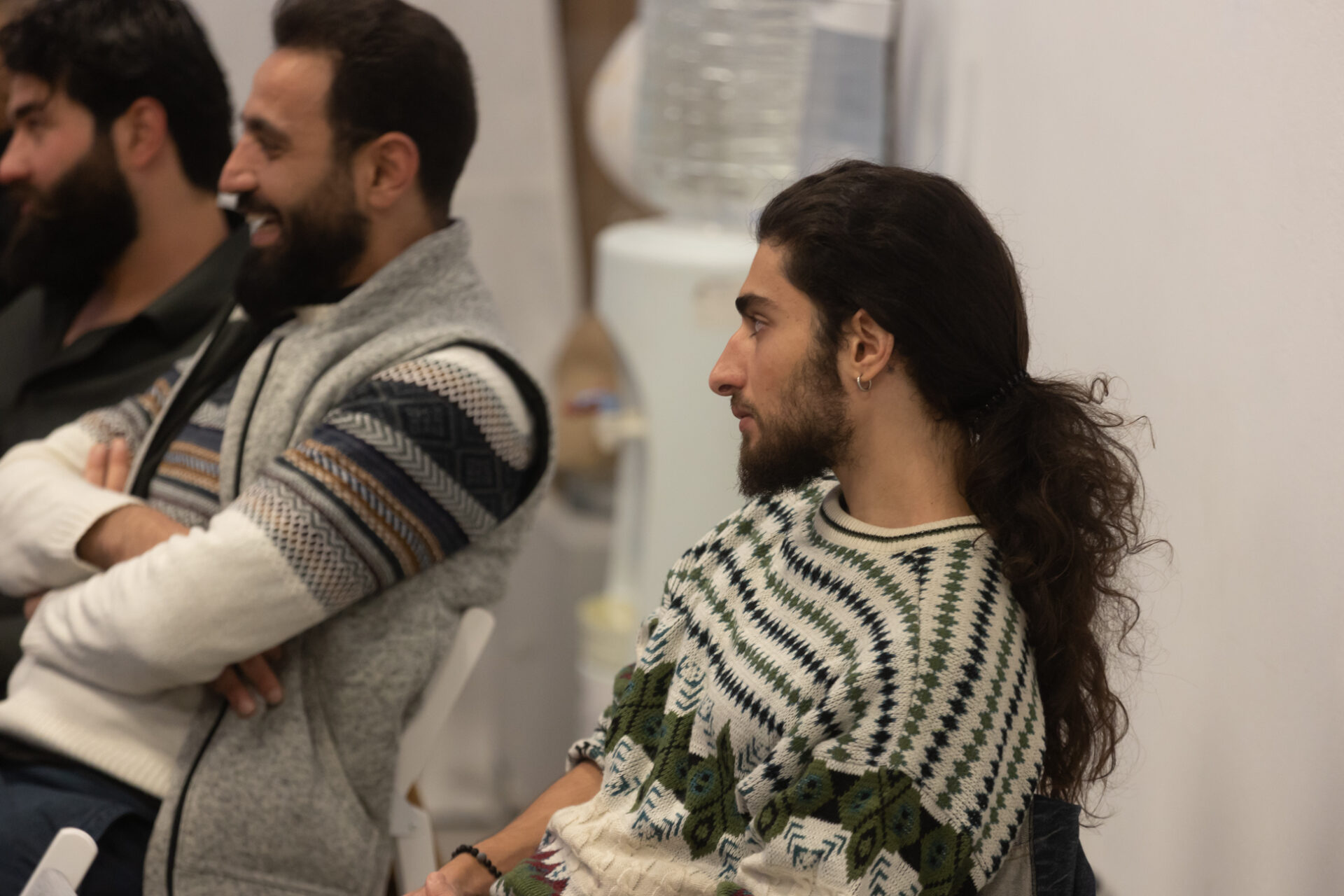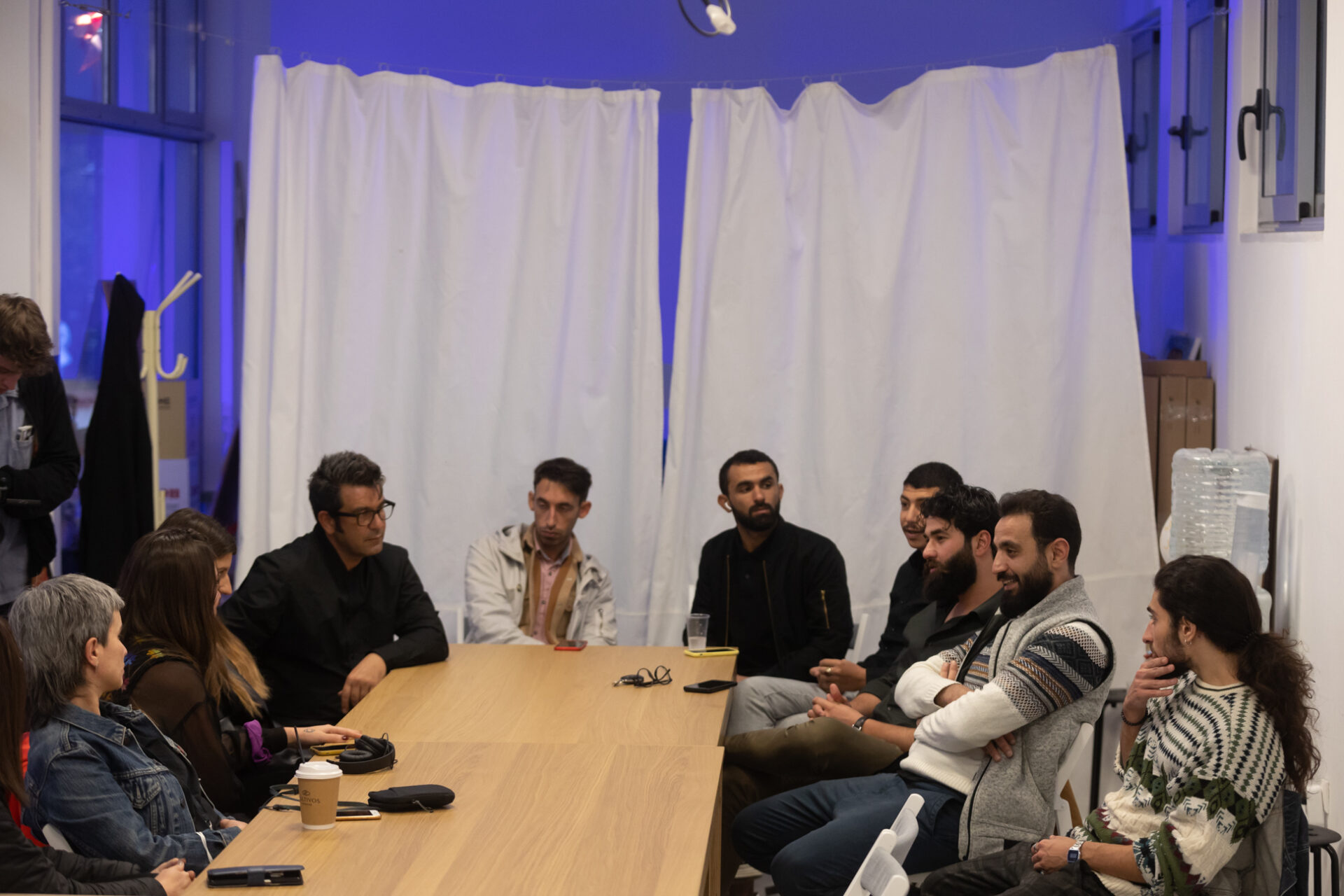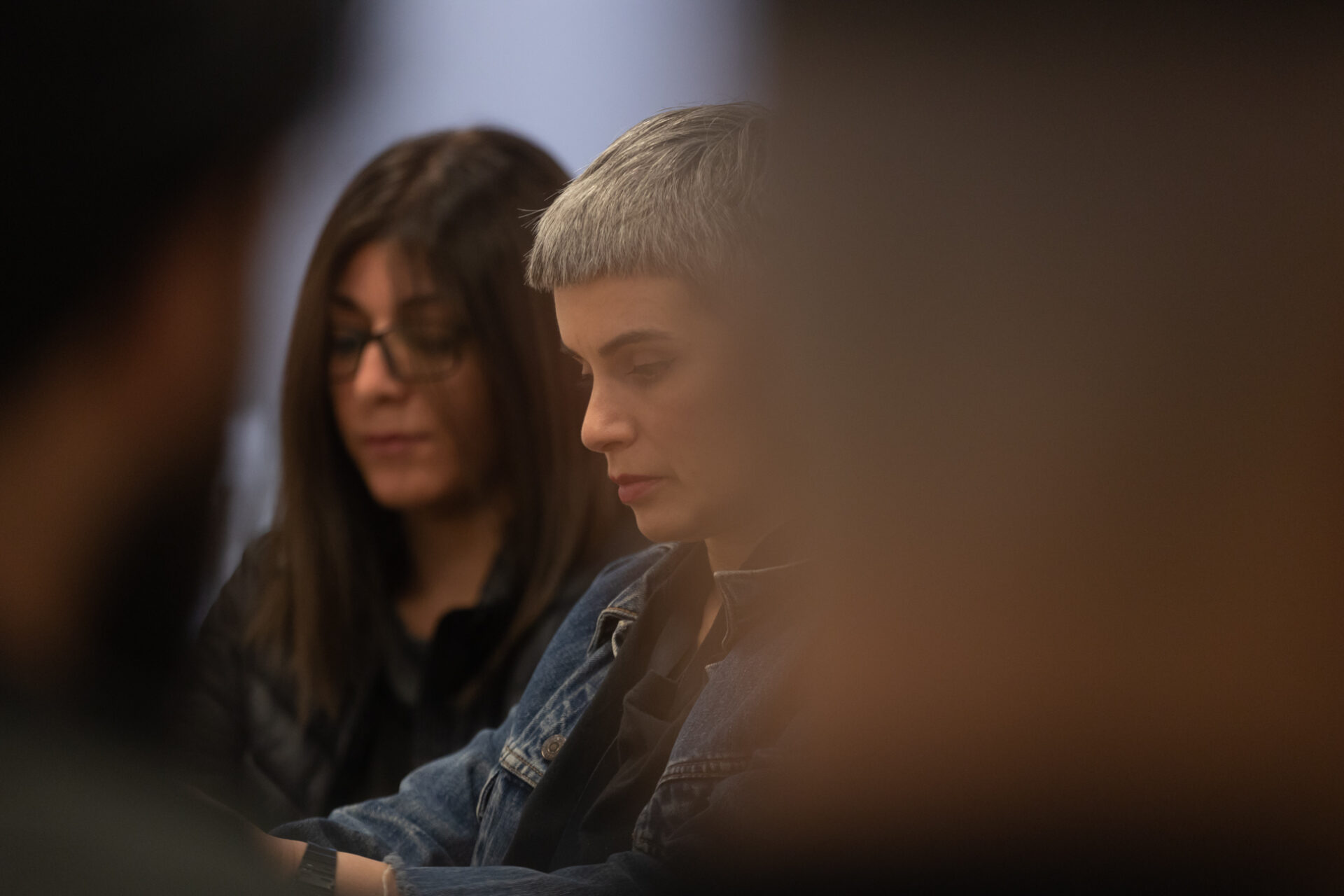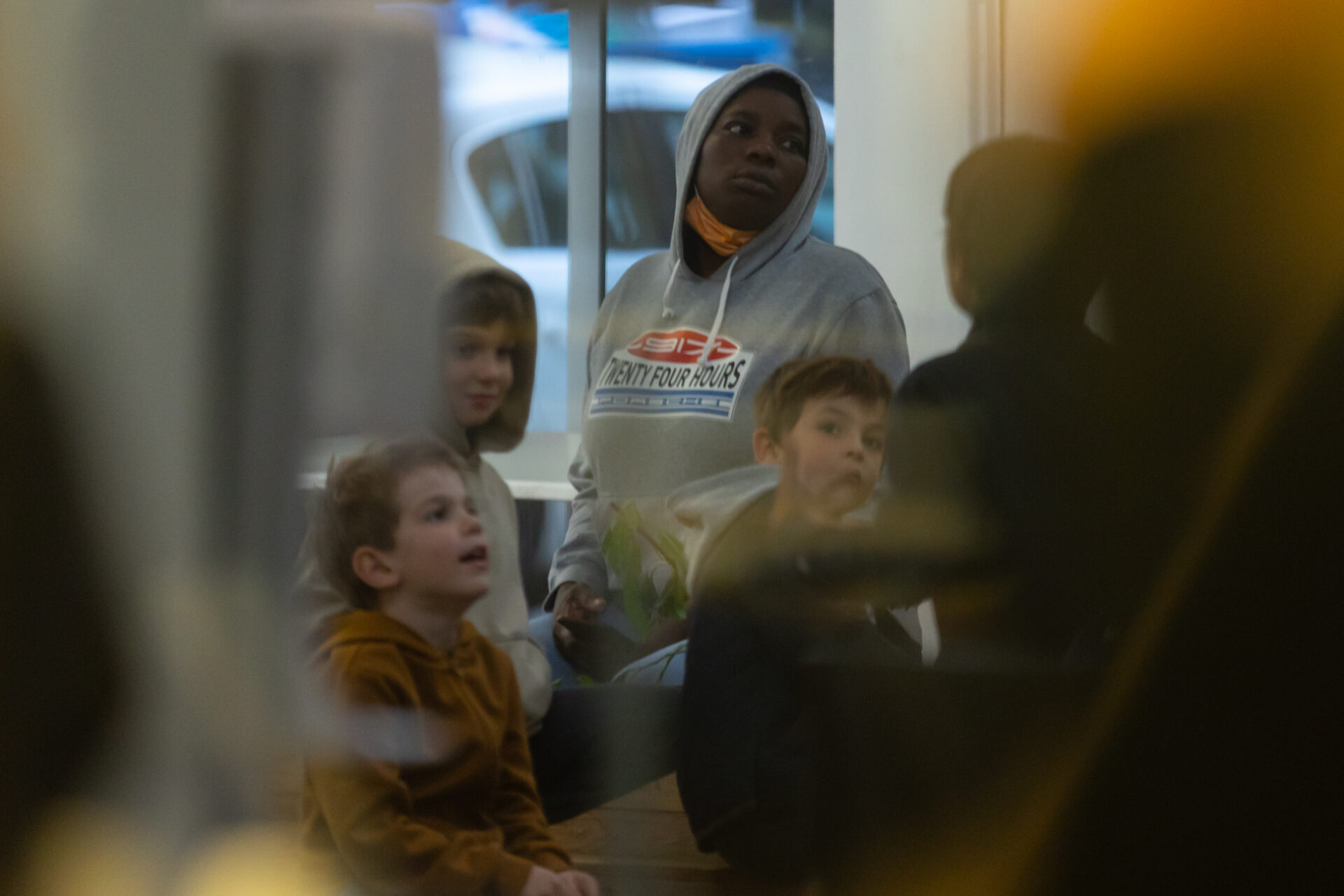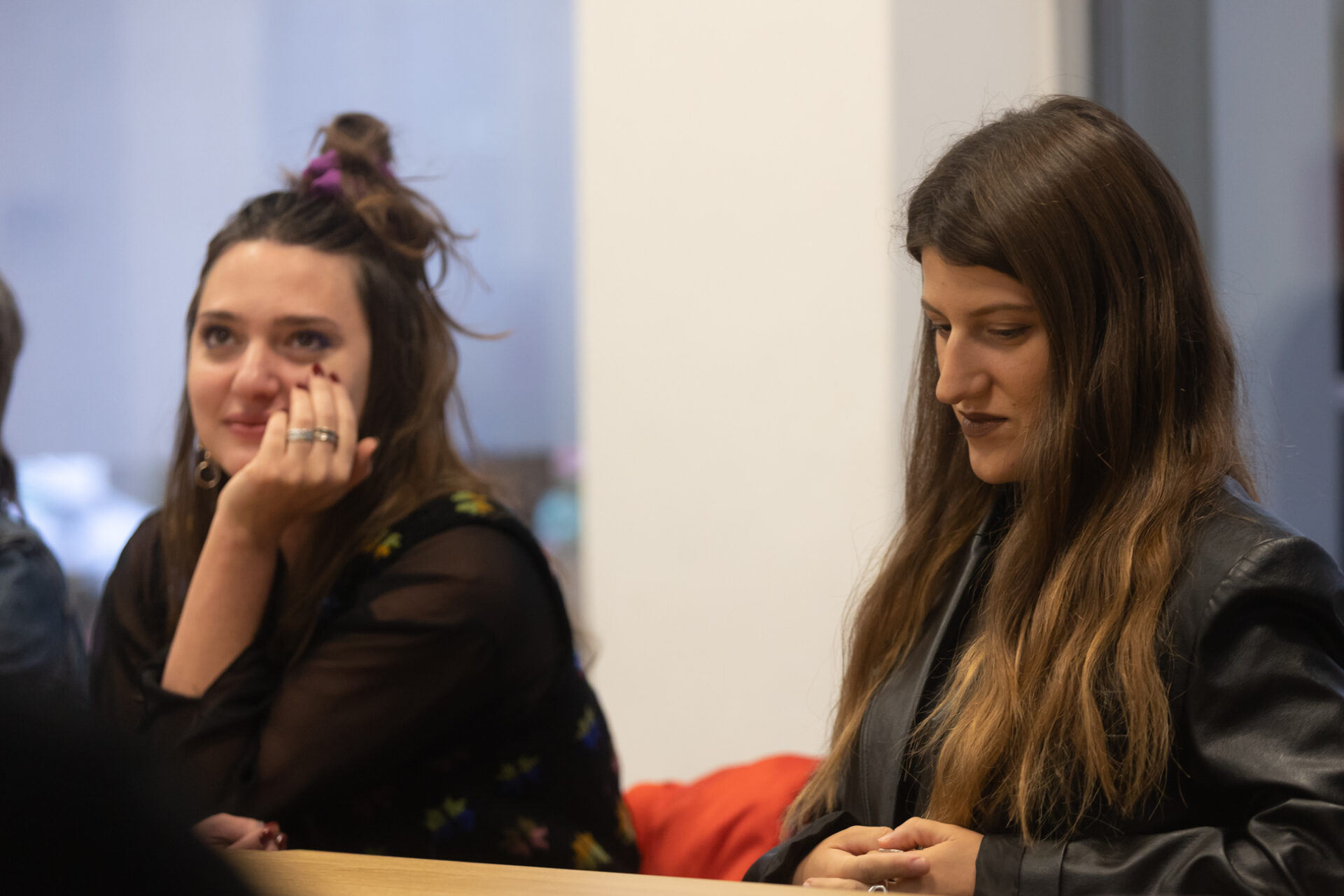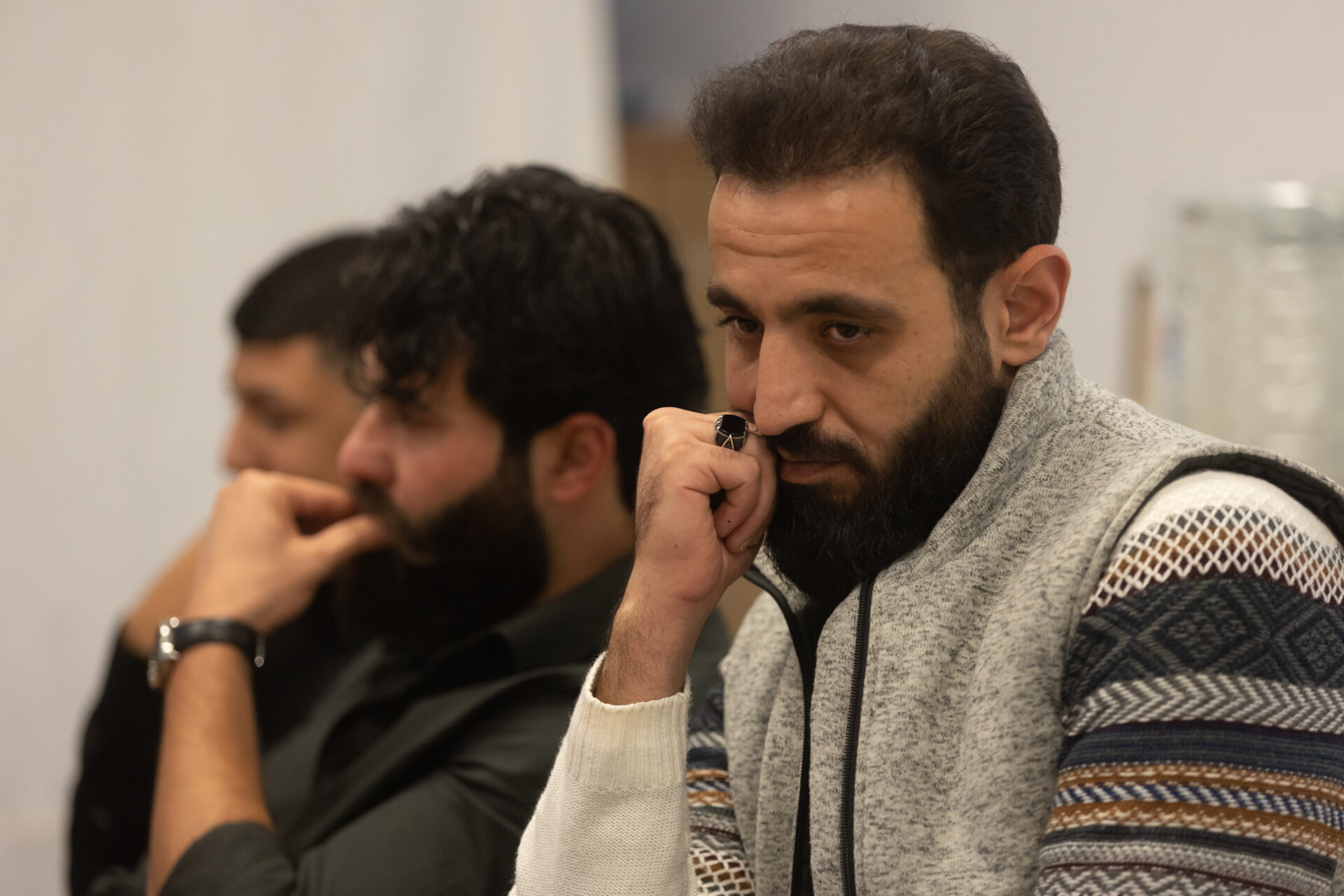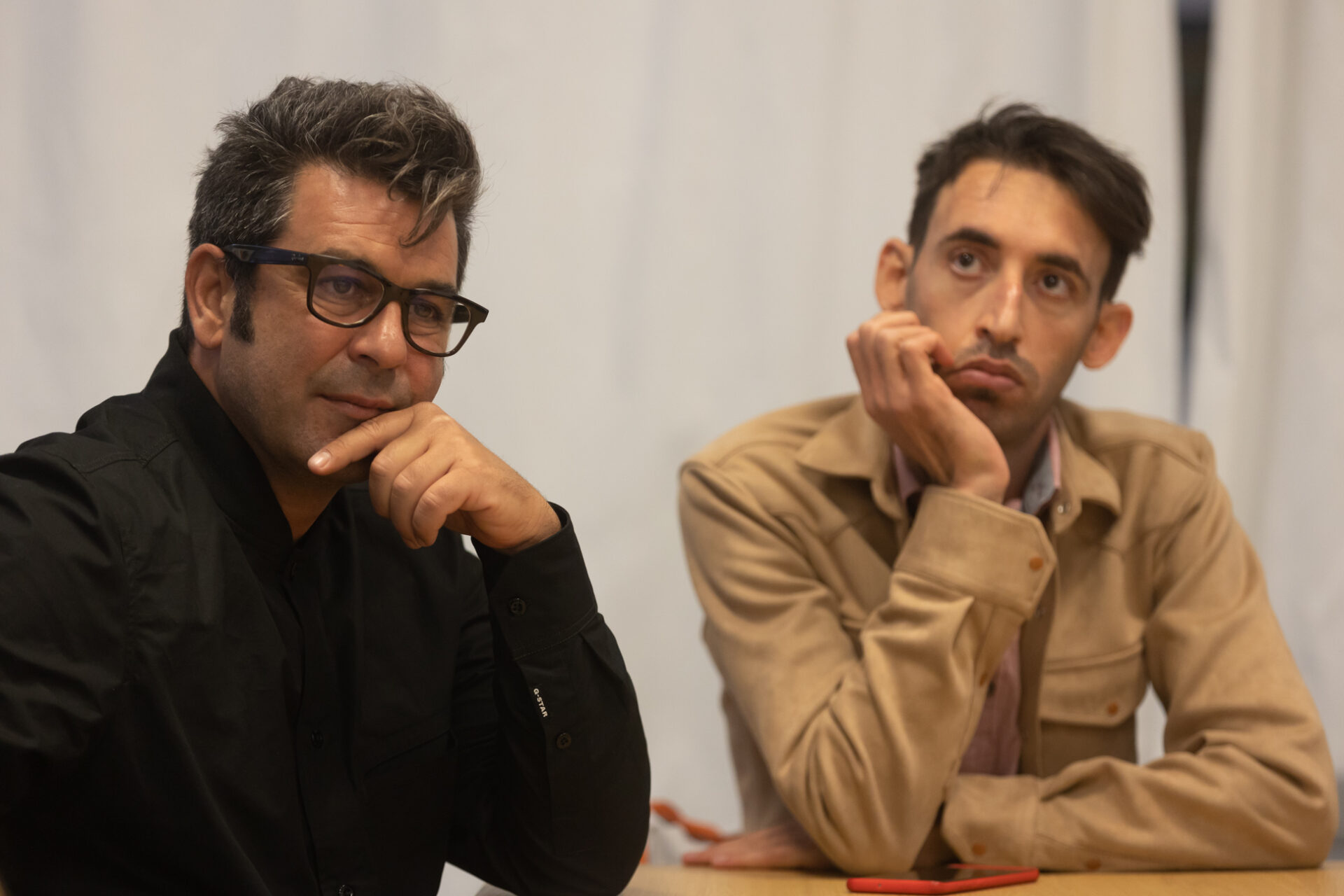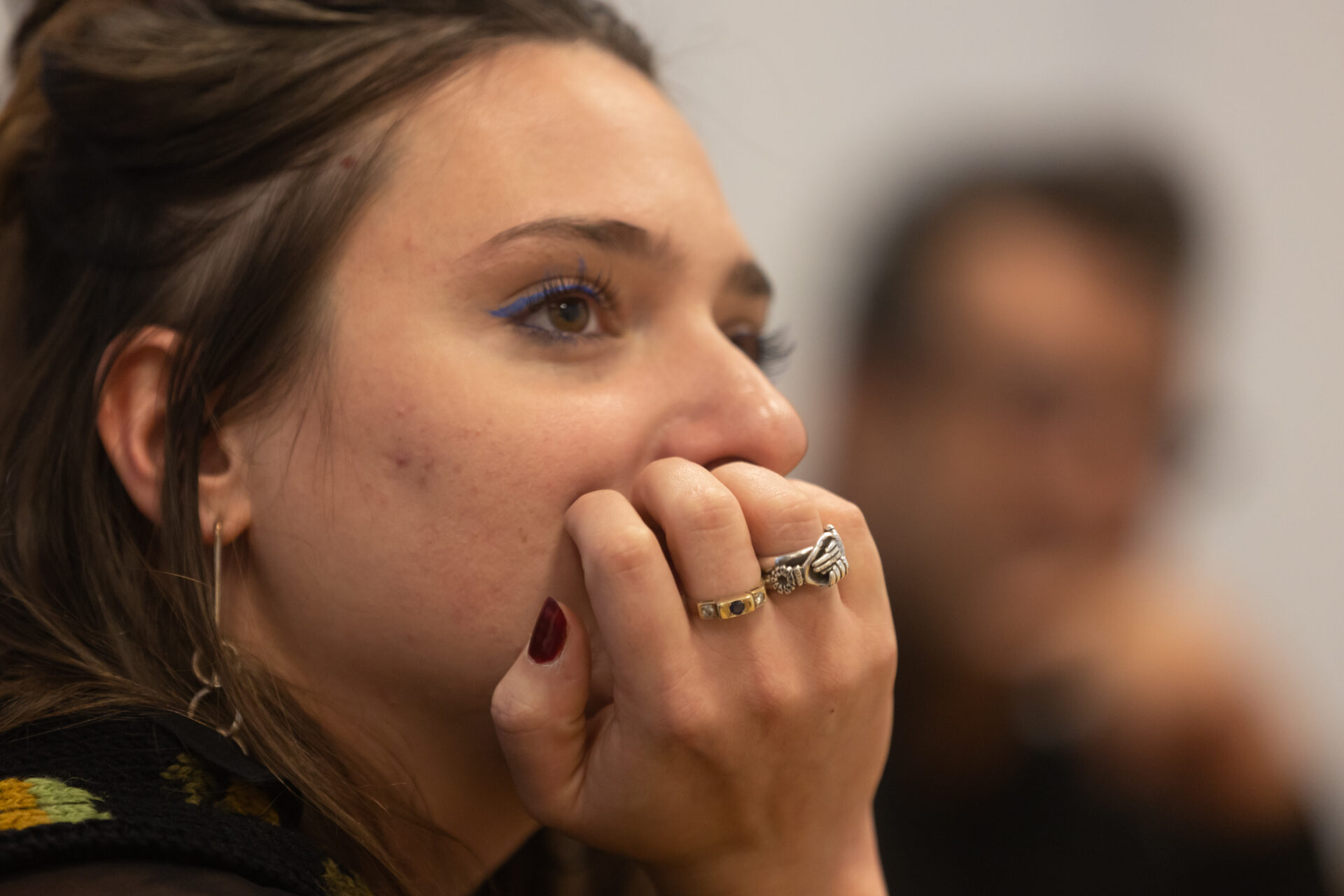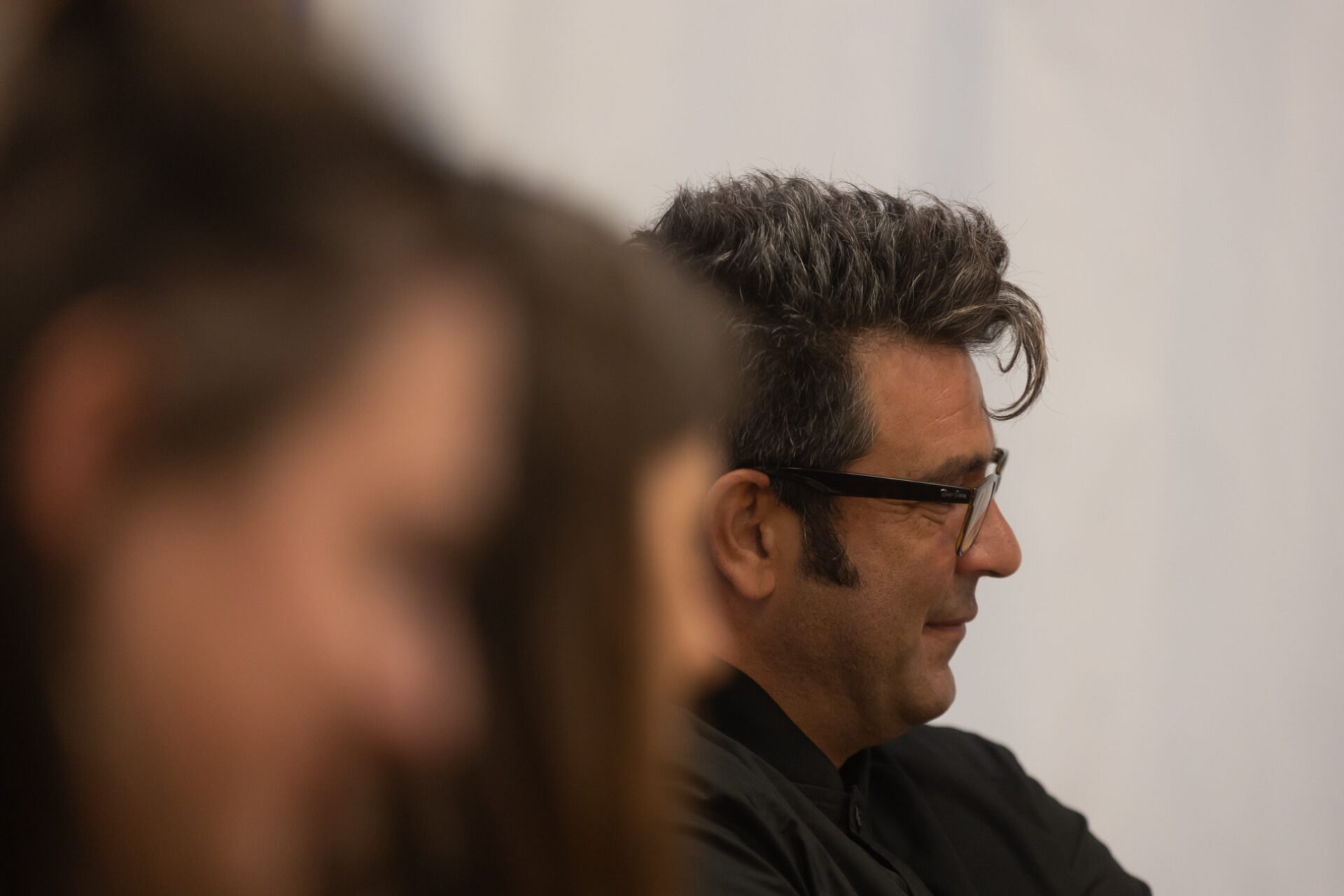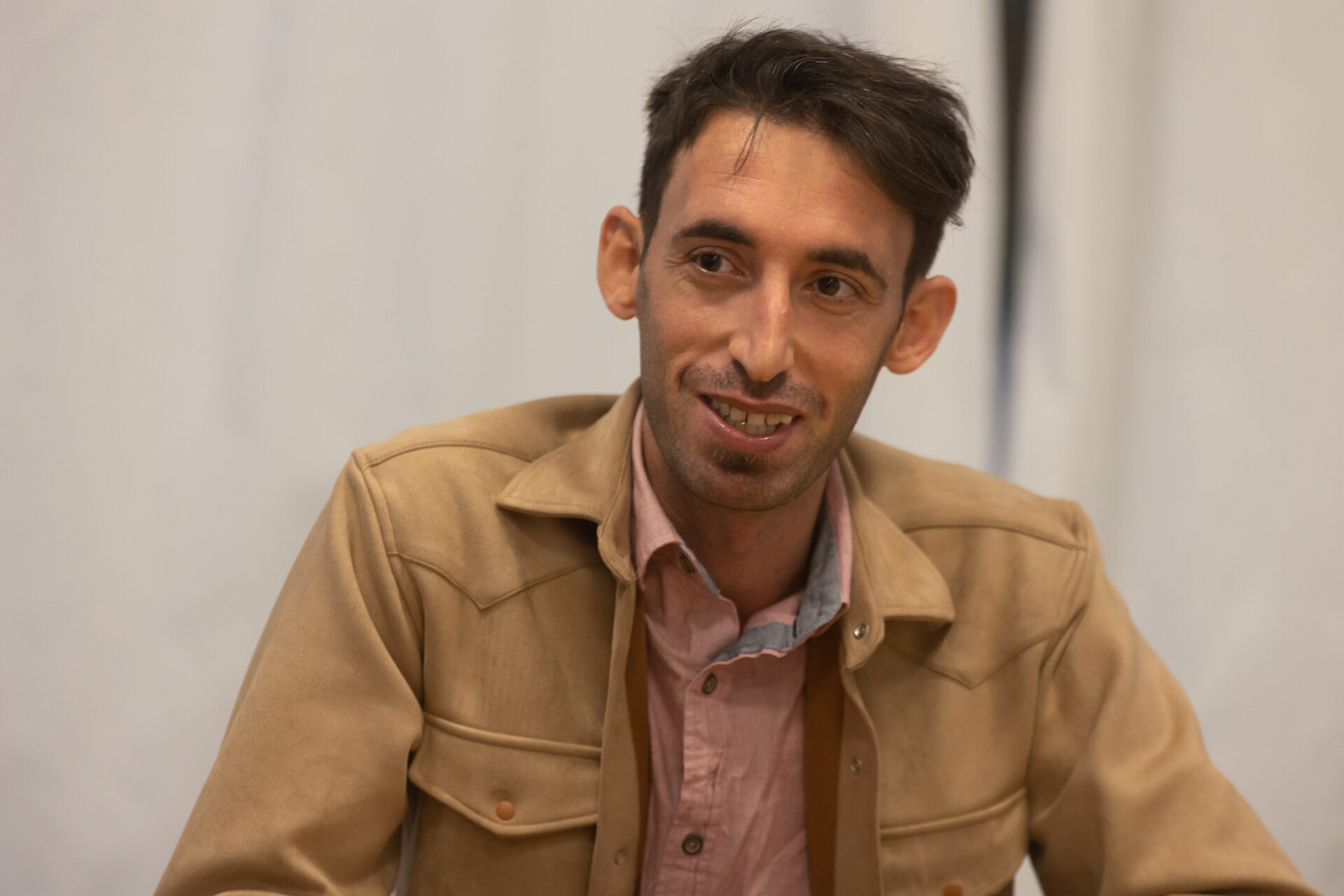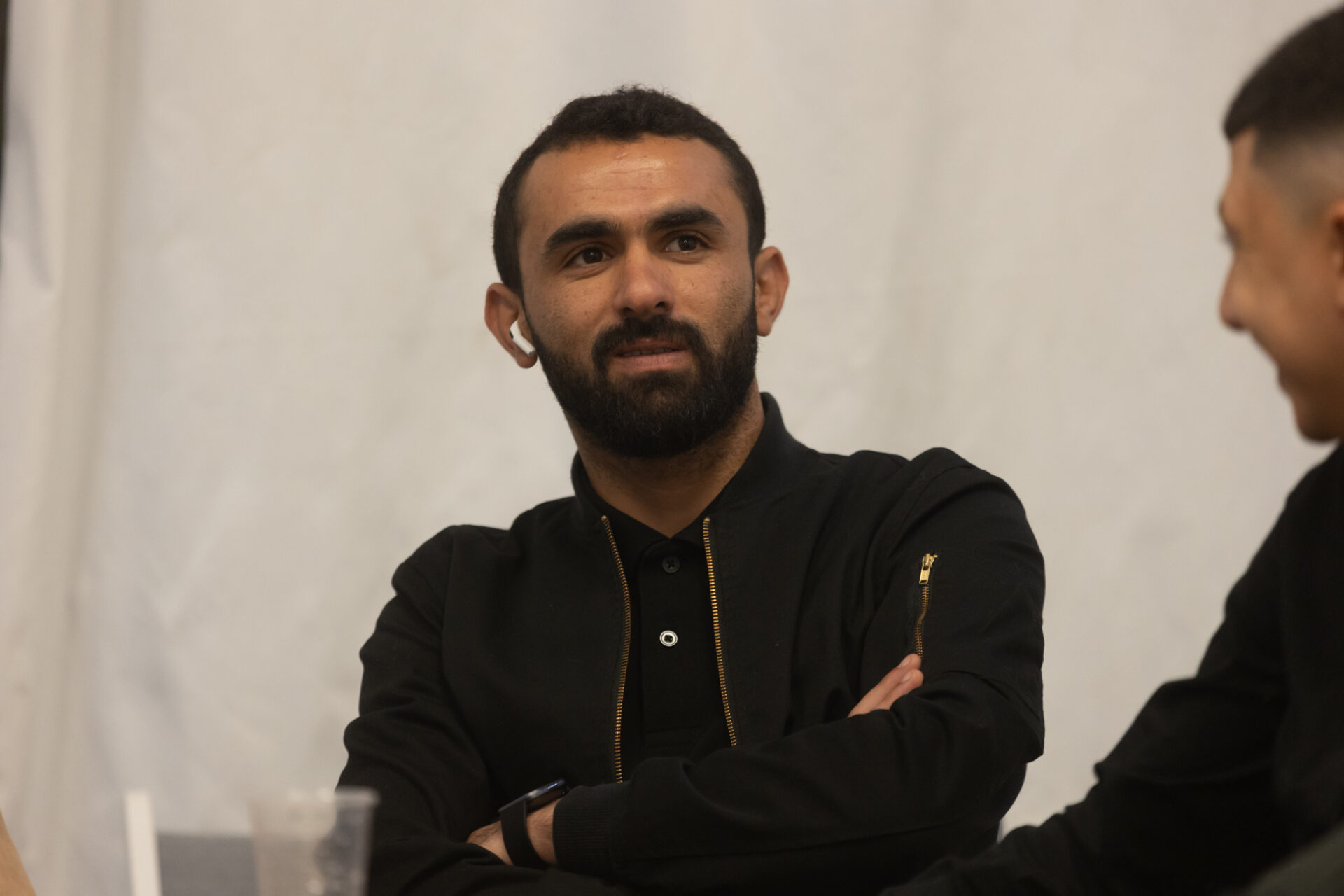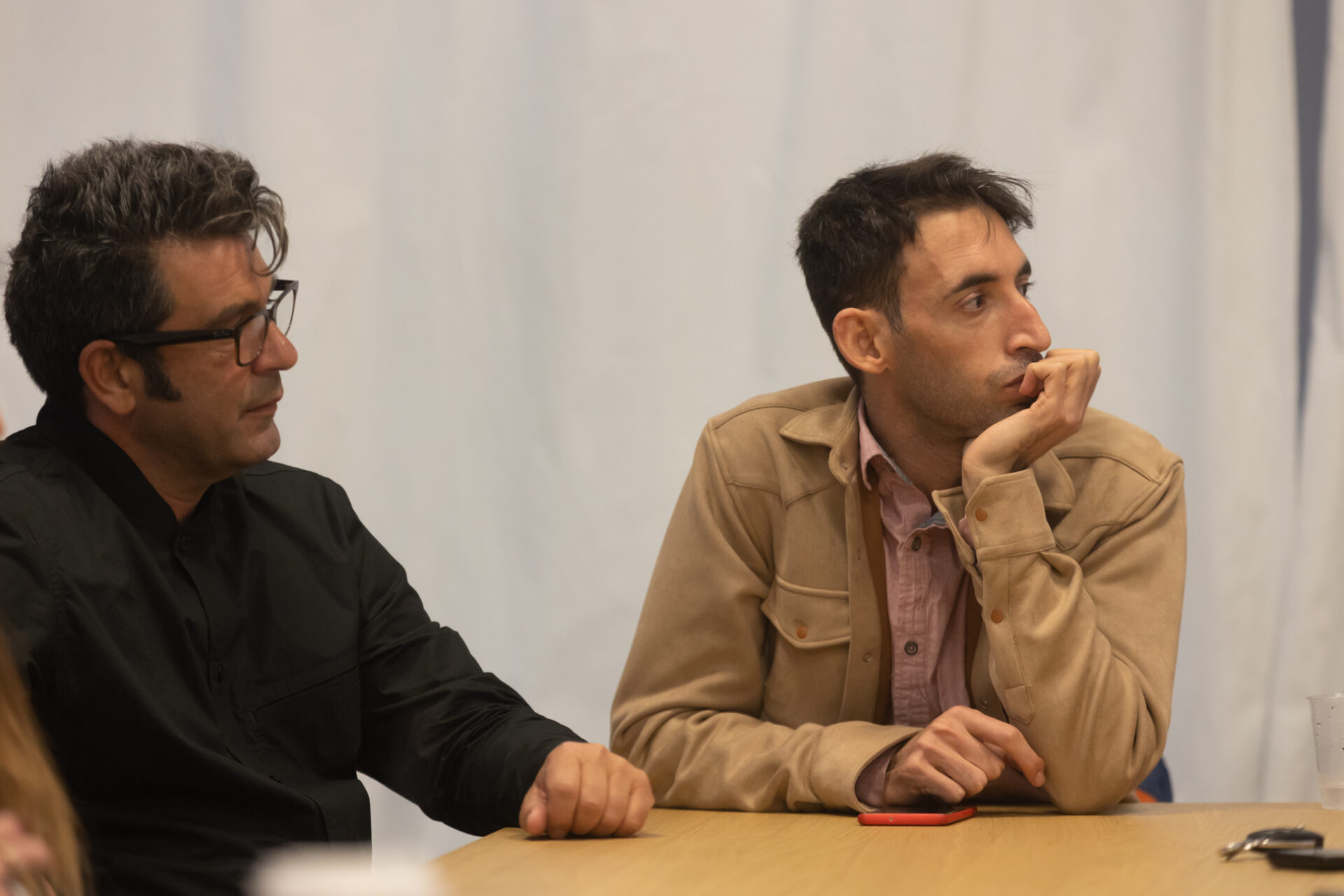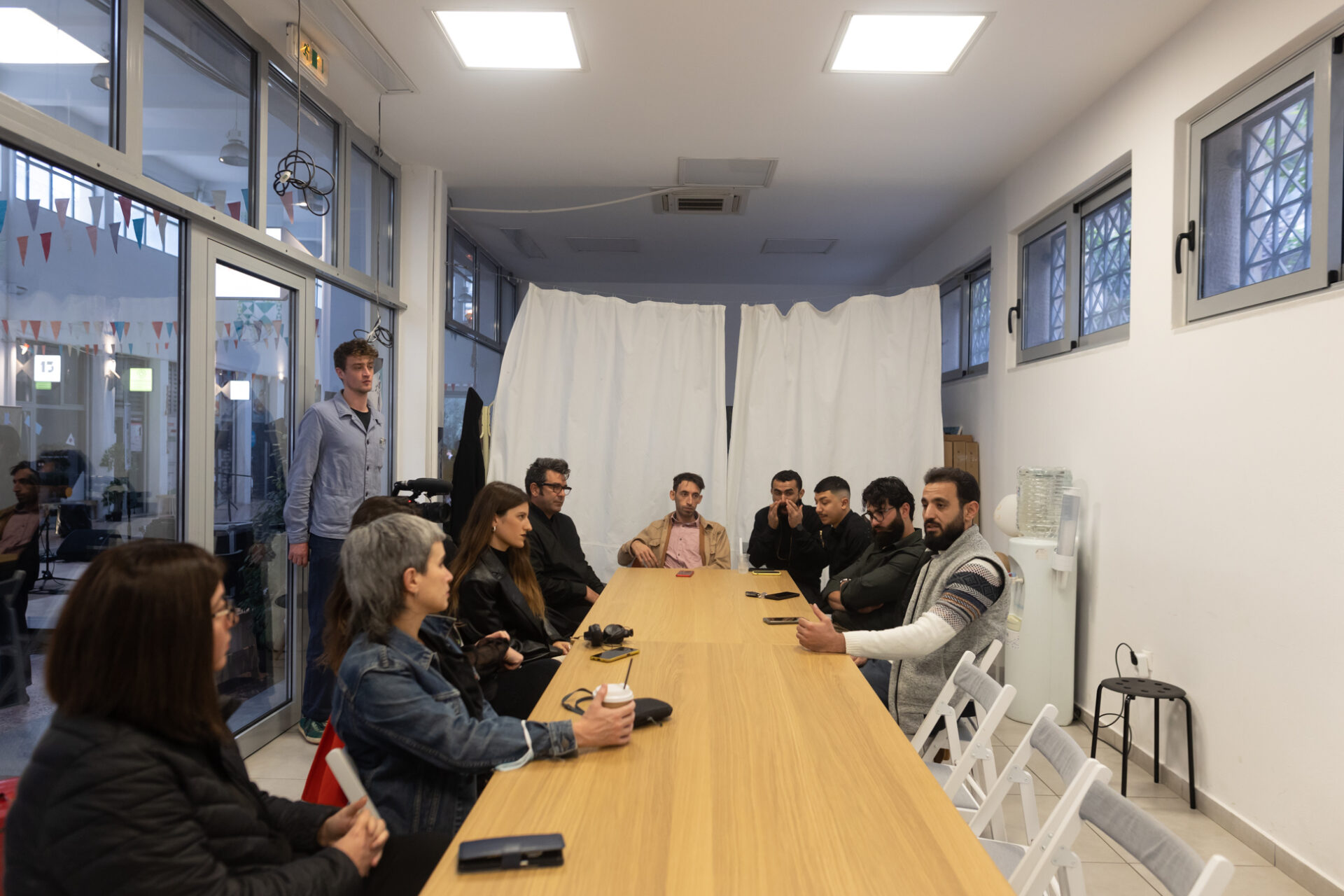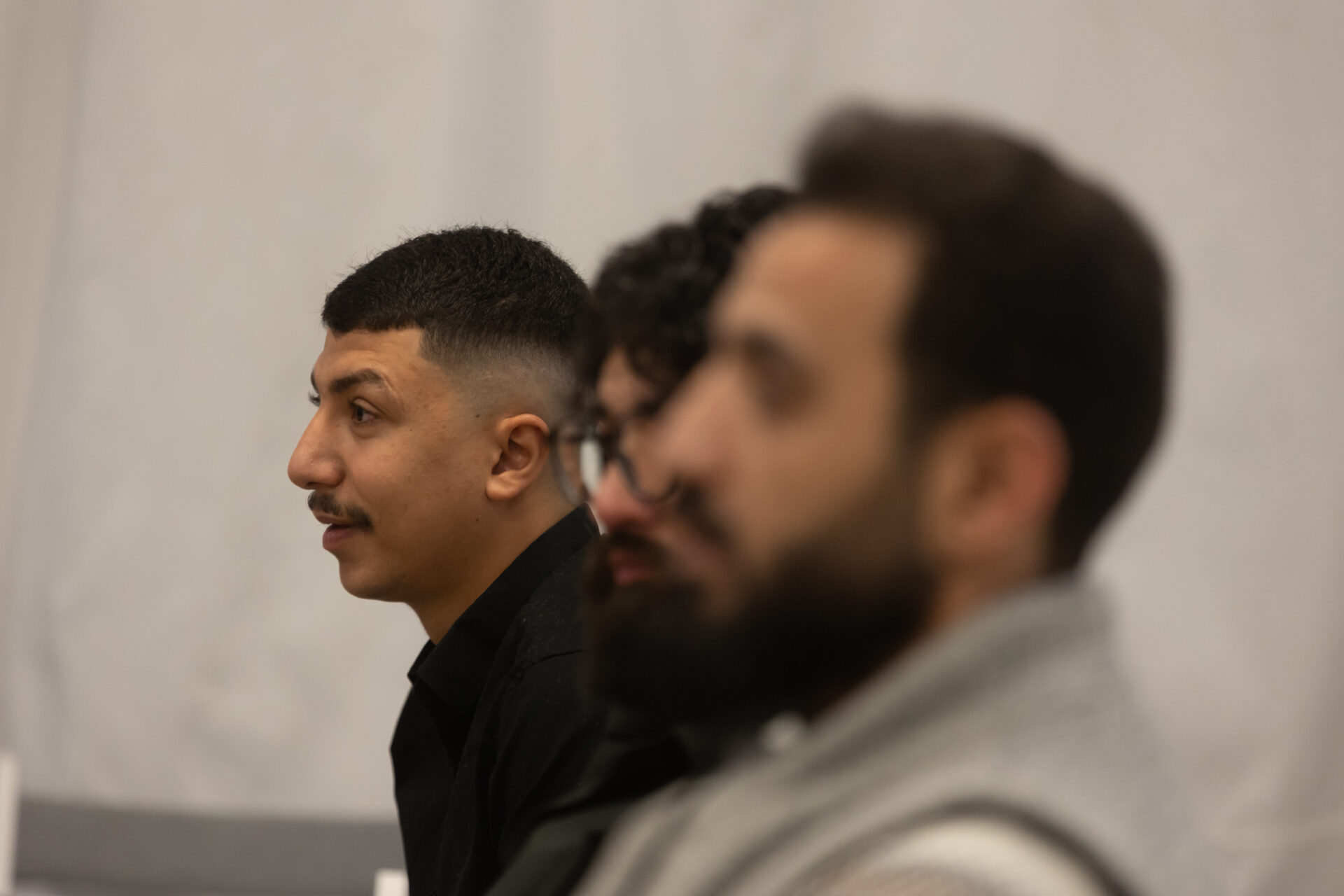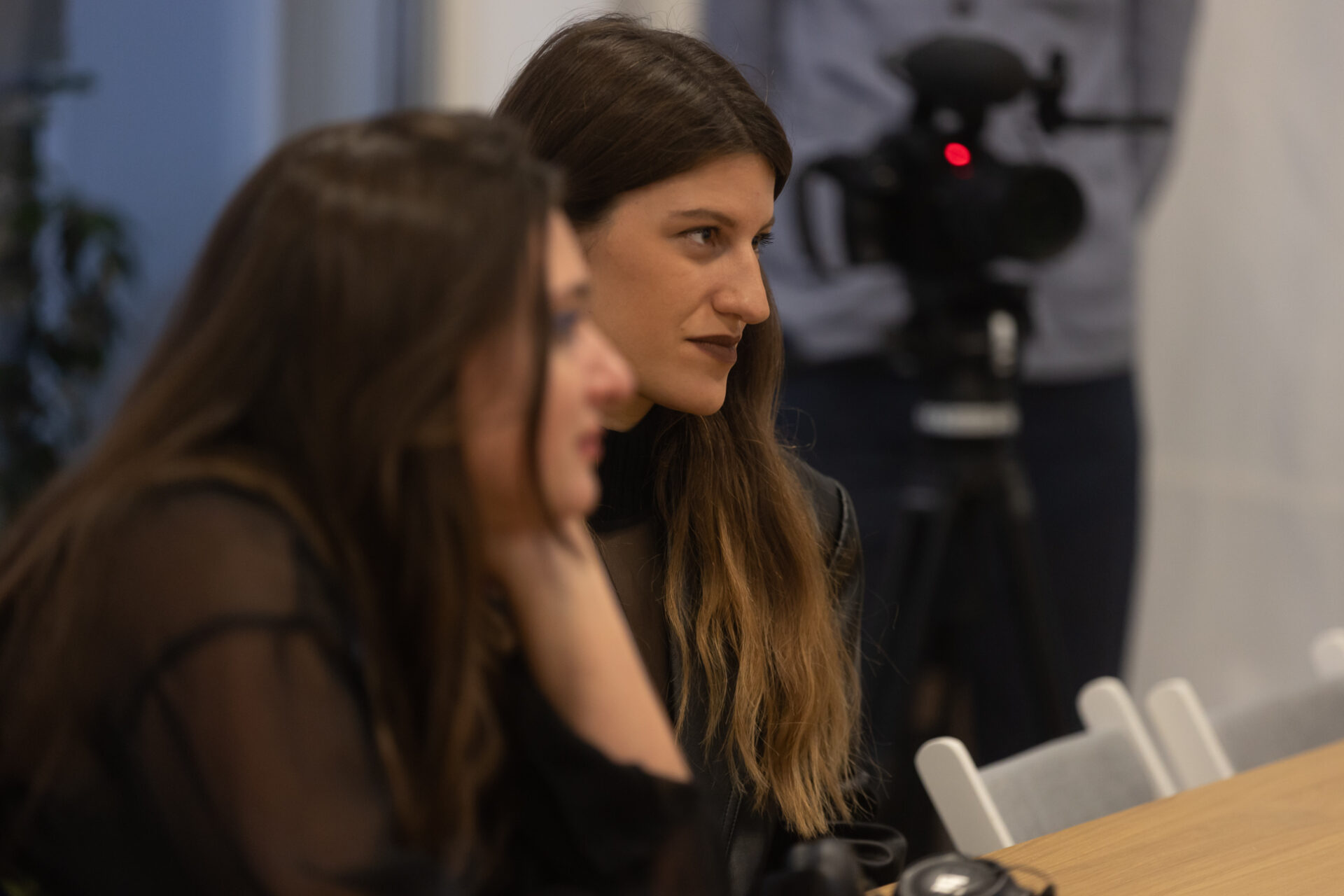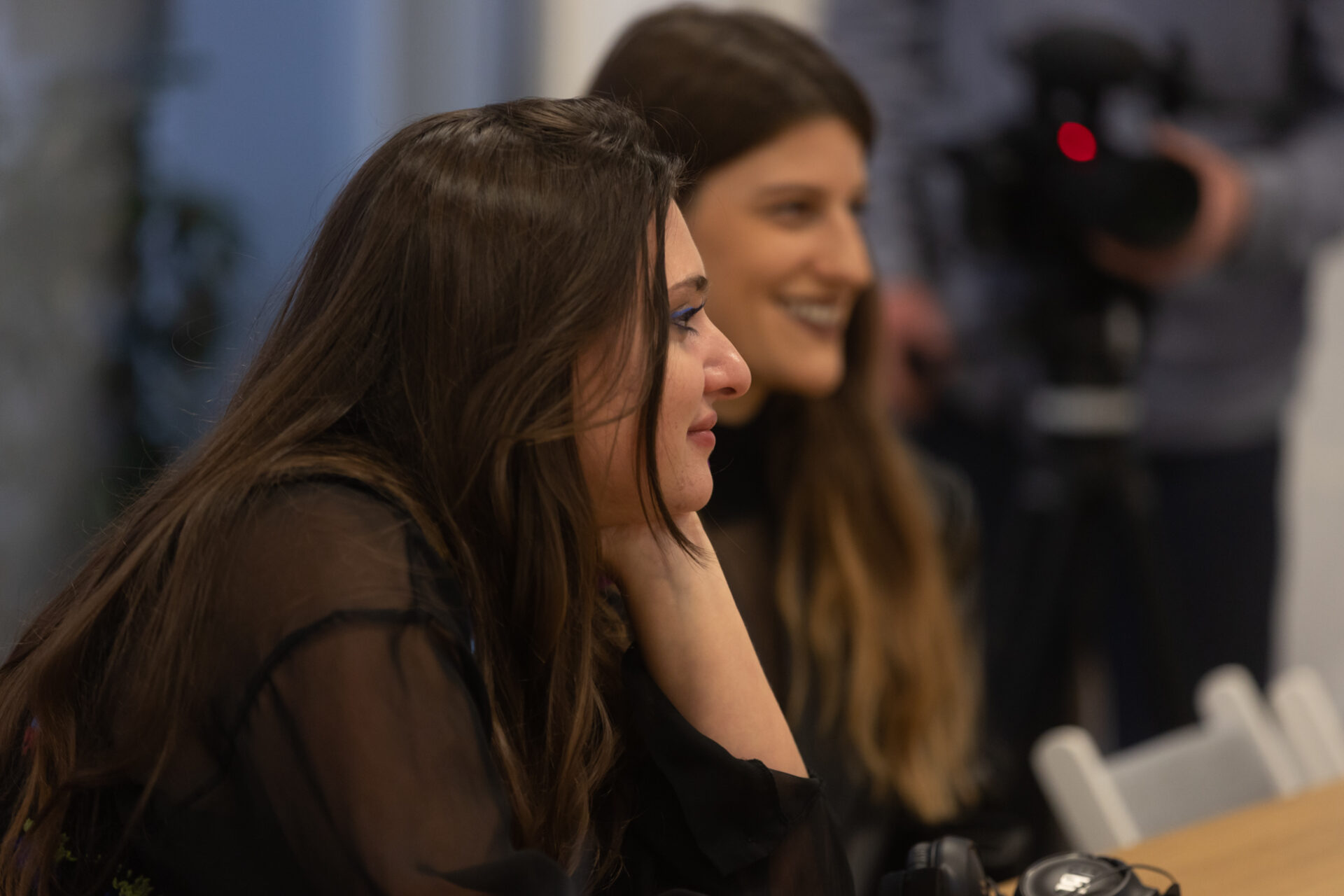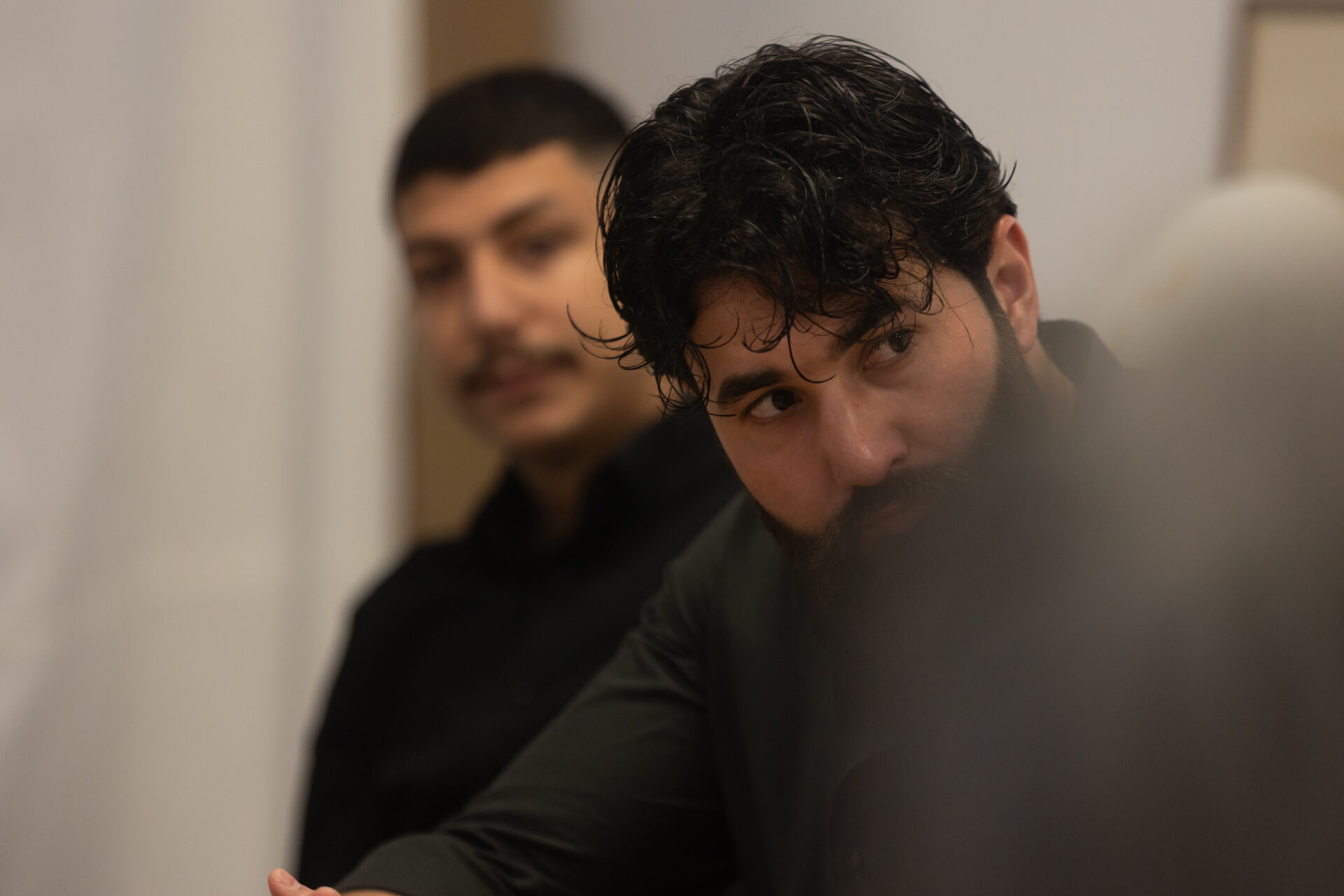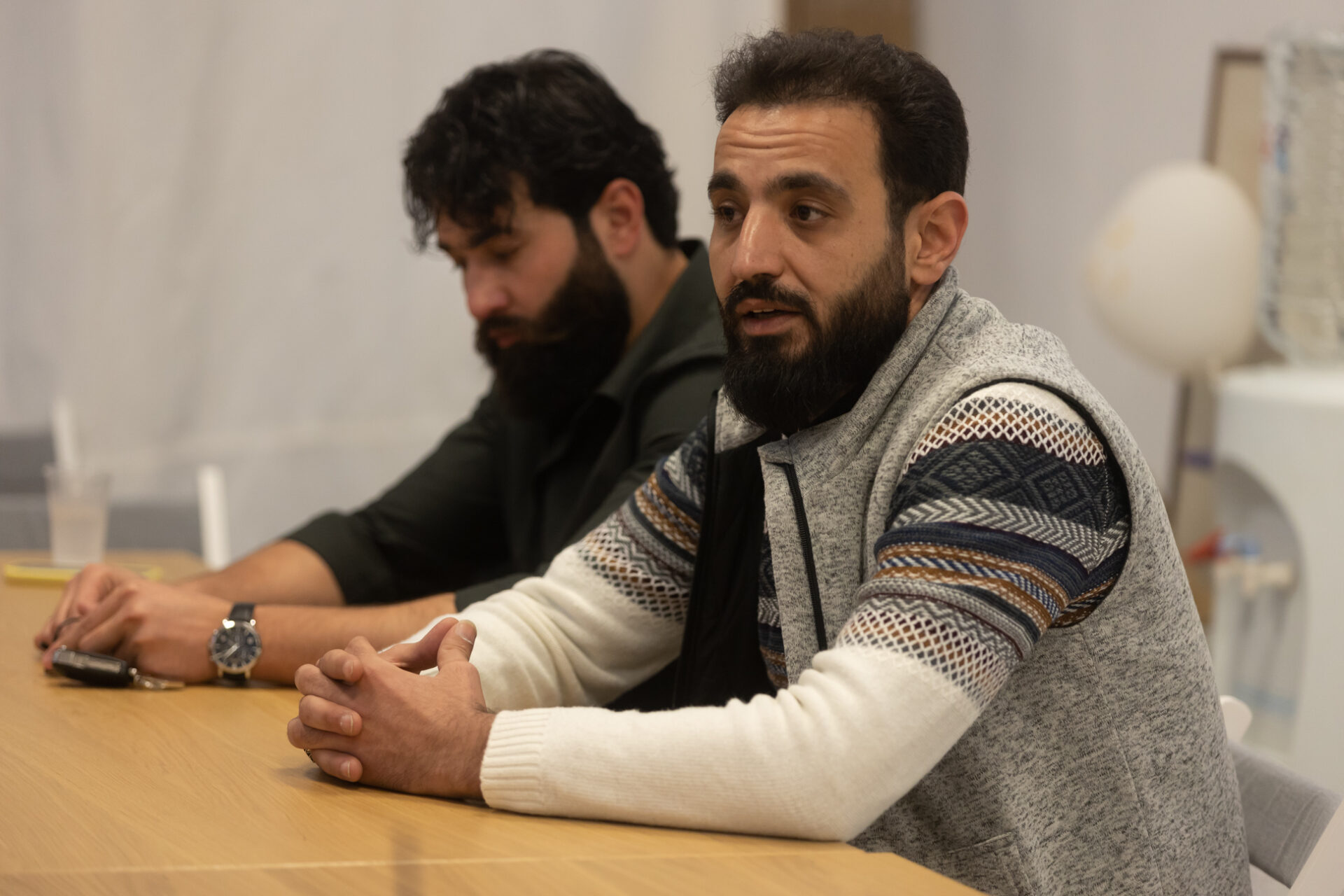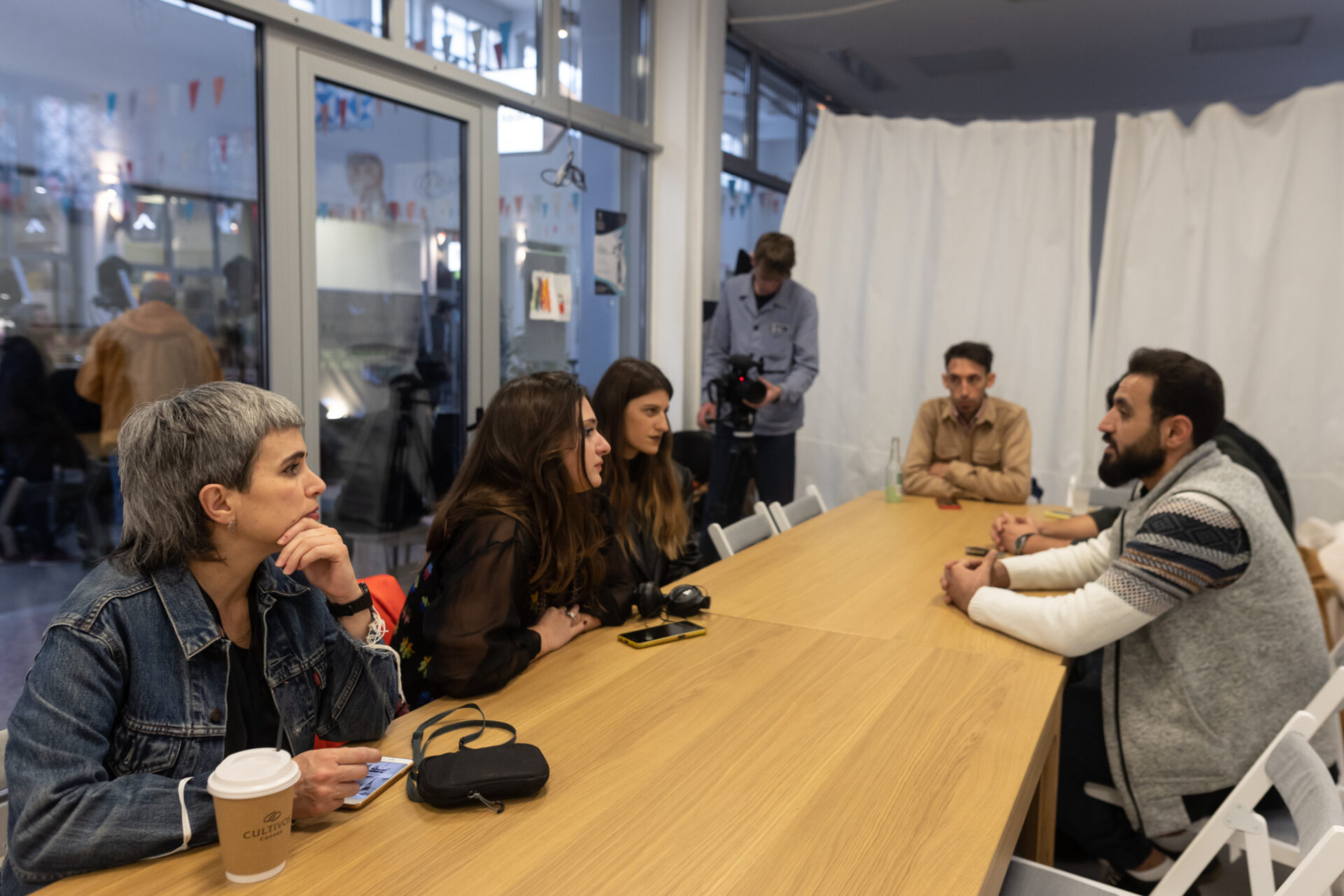Public access
Yes
Tickets
Free (no booking required)
Venue
Municipal Market, Kypseli, Athens, Greece
Each city partner across its 16 European countries hosted a cross-sectoral symposium exploring the relationship between the city and its Ulysses inspired ARTS & SOCIETY theme – migration, democracy, mental health, environmental pollution, social co-existence, sexual equality and freedom of speech, amongst others. In June 2024 all partners gathered in Dublin to discuss the outcomes of the city symposia and the resulting pamphlet, Will You Answer? 309 Questions from Europe, will be published in late 2024, structured in the form of 309 questions (as inspired by episode 17 of Ulysses) as an inspiration for artists and policy makers alike.
The mini symposium in Athens was realised in collaboration with the Syrian and Greek Youth Forum at the Municipal Market of Kypseli in the framework of the event “On the Move: Mediterranean Futures” organised by Onassis Stegi. Approximately 20 people attended the talk, which had the form of an open round table discussion.
One of the main practices of the Syrian & Greek Youth Forum is the archive of field recordings in Athens and beyond that it strives to achieve new ways of citizenship, to record soundscapes that prove that – on the micro level more inclusive, more democratic citizenships are possible when communities and collectives strive to fill in the gaps left by formal institutions.
The mini symposium included a listening session of one of these field recordings, focusing on the neighbourhood of Kypseli which had been recorded in 2020 during lockdown. The sound piece was a nuanced and subtle documentation of what it means to “live together” in the public space, an affectionate portrait of a neighbourhood, an example of how gradual and daily processes of belonging steadily build the infrastructure for active citizenship and more democratic, inclusive futures. Listening to the sounds of the neighbourhood, overlapping discussions and shared spaces, are also valuable tools towards understanding how space and rights are negotiated on a day to day basis within the city. Additionally the element of the lockdown was very important, showcasing that in times of crisis – be it health or otherwise – democracy prevails and is not only a political practice to be exercised within formal institutionalised environments, but involves a steady and slow osmosis between citizens themselves. This resulted to a politically charged discussion between all the participants – people from different backgrounds – that concluded in certain questions mainly regarding the citizenship issues faced by people with a refugee status which pose actual threats to people that come to the European Union seeking brighter futures. It also examined the role of the state in building inclusive democratic processes by coming closer to its historical roots which are organised at a community level.
